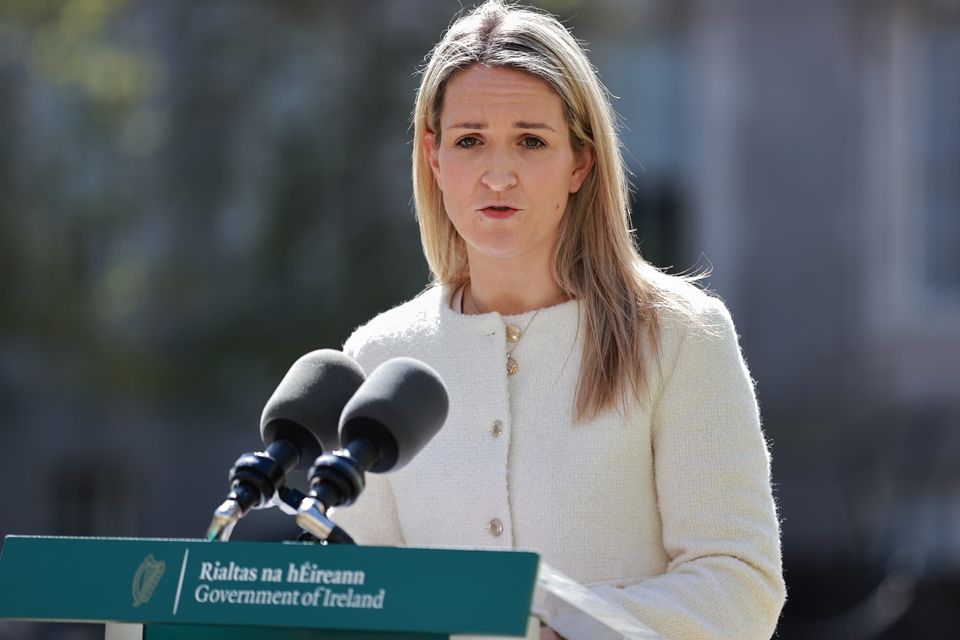What’s new with you? What Americans talk about with family and friends
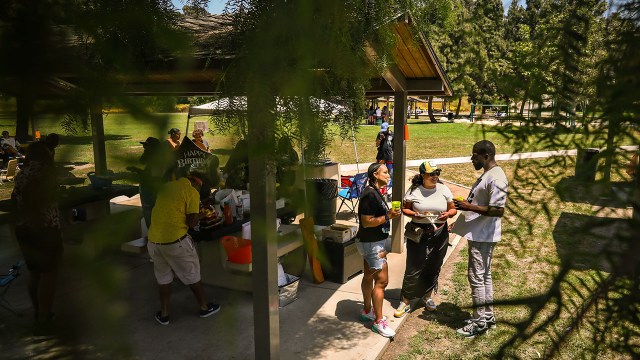
When Americans gather for the July Fourth holiday, they will likely discuss a wide variety of topics, from work and personal health to politics and pets.
Yet for most people, simply catching up is a far more popular topic of conversation than any of those issues when they talk with family and friends.
Nearly seven-in-ten Americans (69%) say they talk to their close friends and family a lot about what’s happening with them. That is by far the highest share for any of the 12 topics Pew Research Center asked about in a recent survey.
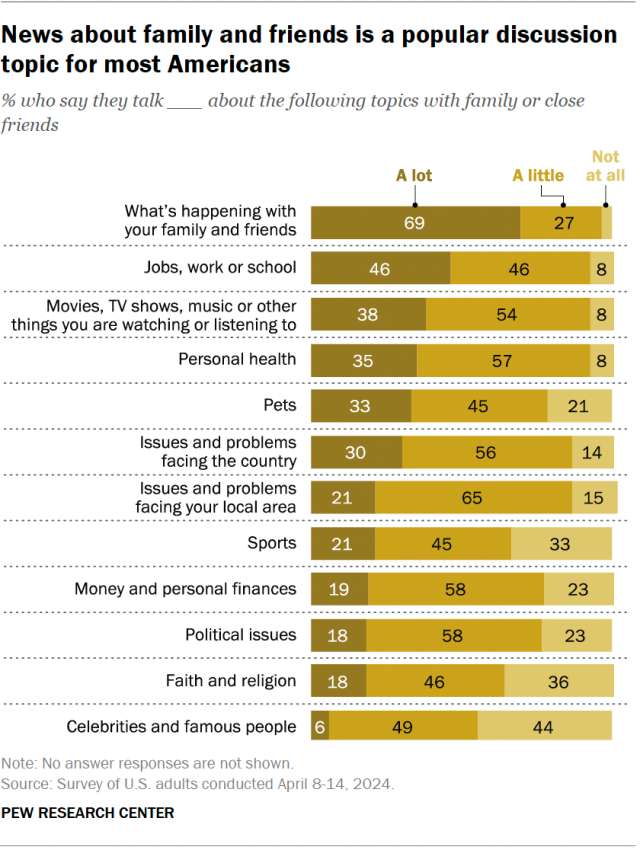
Family and friends are a popular topic across demographic groups. Sizable majorities of Americans across nearly all groups – and close to identical shares of Republicans and Democrats – say they talk a lot about what’s going on with family and friends.
Work and school also come up frequently. Almost half of Americans (46%) say they talk a lot with family and close friends about jobs, work or school. Adults younger than 50 are far more likely than those 50 and older to say they talk a lot about this with family or friends (58% vs. 32%).
Younger adults are more likely than older ones to chat about pop culture. More than four-in-ten (44%) of those under 50 say they talk a lot with family and friends about movies, TV shows and other things people are watching or listening to. That compares with 30% of those 50 and older.
Related:
Men and women differ in how often they discuss pets and sports. A third of Americans, including 39% of women and 27% of men, say they talk about pets a lot. And 27% of men say they talk about sports a lot, compared with 16% of women.
Political issues are not discussed a lot. About one-in-five adults (18%) say they talk a lot about political issues; another 58% say politics comes up a little. More Americans say they discuss issues and problems facing the country a lot (30%) than say they discuss politics that often.
Few partisan differences in conversation topics
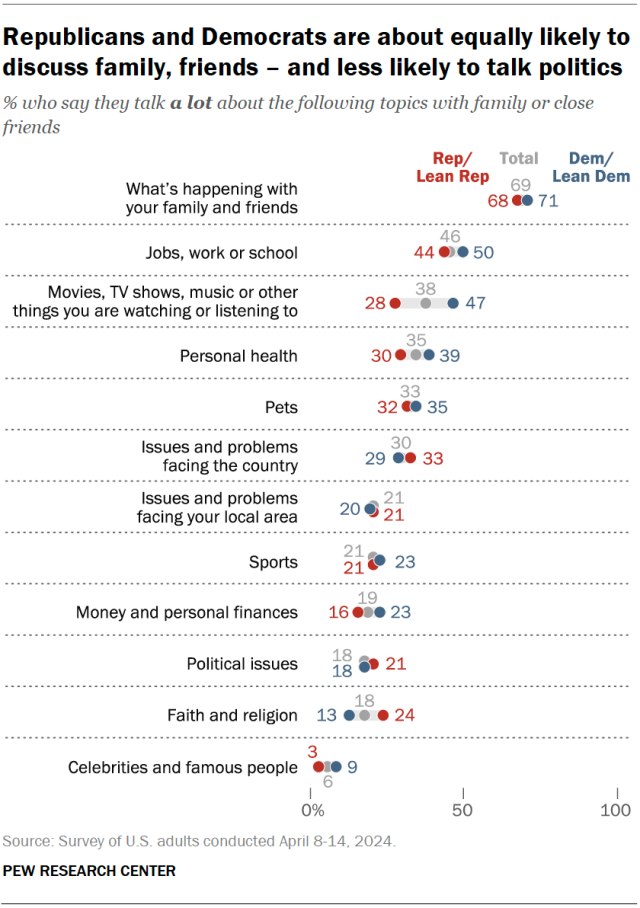
For the most part, Republicans and Democrats are about equally likely to say they often talk about various topics with family or close friends. For example, comparable majorities of Democrats and Democratic-leaning independents (71%) and Republicans and Republican leaners (68%) say they talk a lot about what’s happening with their family and friends.
And only about one-in-five Republicans (21%) and Democrats (18%) say they discuss political issues frequently.
However, there are slight partisan differences in how frequently religion and pop culture come up in conversation:
- Republicans are nearly twice as likely as Democrats to say they talk about faith and religion a lot (24% vs. 13%).
- Nearly half of Democrats (47%) say they talk about movies, TV shows or music a lot – compared with only about three-in-ten Republicans (28%).
- Democrats are also more likely than Republicans to say they talk about celebrities and famous people a lot, though few in either group say they do this (9% vs. 3%).
Note: Here are the questions used for this analysis, along with responses, and its methodology.
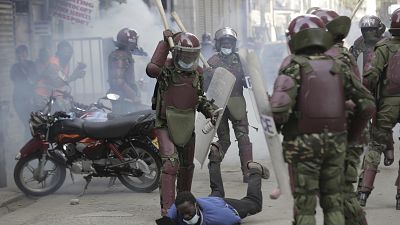

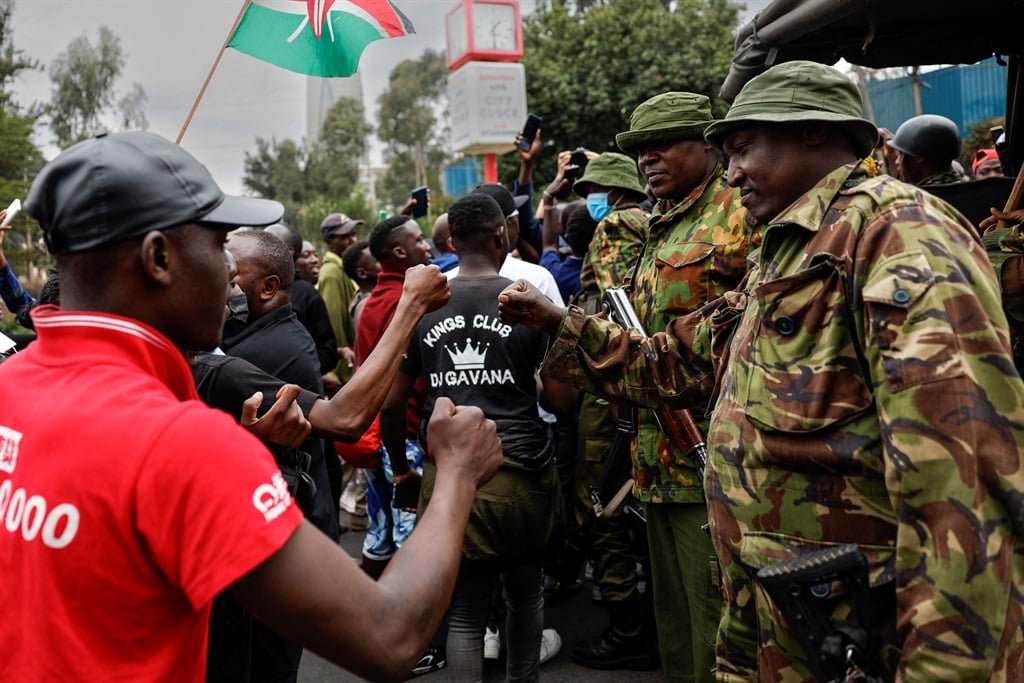
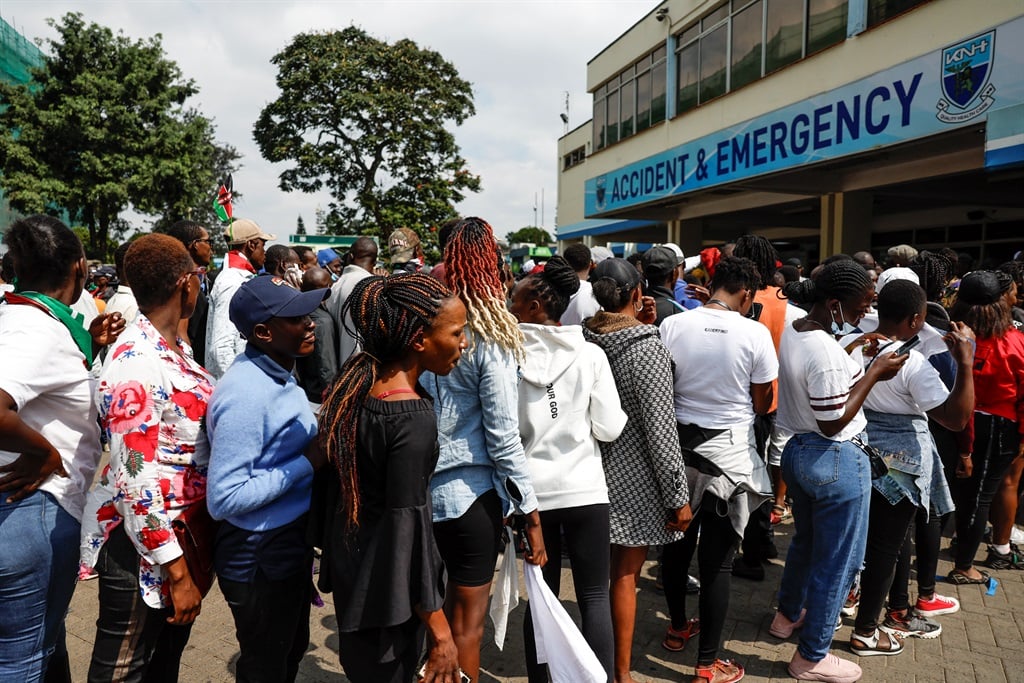





 A campaigner pastes an election poster of French far-right Rassemblement National (RN) candidate Sandrine Chadournec in Libourne, southwestern France on 2 July, 2024 as part of the French legislative elections. © Philippe Lopez / AFP
A campaigner pastes an election poster of French far-right Rassemblement National (RN) candidate Sandrine Chadournec in Libourne, southwestern France on 2 July, 2024 as part of the French legislative elections. © Philippe Lopez / AFP